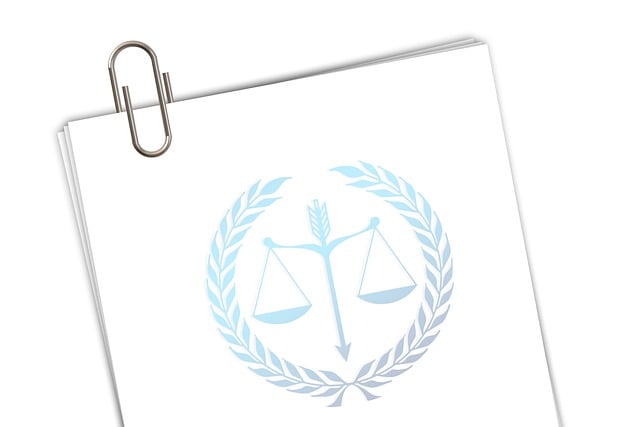Understanding drug possession laws is essential for defending against regulatory fraud charges. Legal approaches include challenging evidence, proving lack of intent, and leveraging extenuating circumstances. Skilled attorneys navigate jurisdiction variations and employ tactics like disputing evidence integrity and questioning witness credibility. These strategic defenses aim to protect rights, mitigate consequences, and ensure fairness in drug possession cases, ultimately securing favorable outcomes through meticulous examination and legal loopholes.
Navigating regulatory fraud laws, especially regarding drug possession, requires a deep understanding of legal approaches for defending against these charges. This article delves into the intricate details of drug possession laws, explores common legal defenses, examines the role of evidence in fraud cases, and provides strategies for effective prosecution and defense. By understanding these key aspects, individuals can better protect their rights and navigate the complex landscape of drug-related legal issues.
- Understanding Drug Possession Laws
- Legal Defenses Against Possession Charges
- The Role of Evidence in Fraud Cases
- Strategies for Effective Prosecution Defense
Understanding Drug Possession Laws

Understanding Drug Possession Laws is a critical step in navigating the complex landscape of regulatory fraud. These laws vary significantly from state to state, but they all share a common goal: to deter and punish individuals found in possession of illegal substances. When facing drug possession charges, it’s crucial to explore legal approaches tailored to your situation, whether you’re a corporate or individual client. A skilled attorney can help decipher the nuances of these laws and develop a robust defense strategy that aligns with your respective business interests.
The key to achieving extraordinary results in such cases often lies in presenting a compelling argument about the circumstances surrounding the possession. This may include challenging the evidence’s admissibility, proving lack of intent, or leveraging any extenuating factors. By employing strategic legal defenses, individuals and businesses can protect their rights and mitigate potential consequences while navigating through the intricate web of drug possession regulations.
Legal Defenses Against Possession Charges

When facing drug possession charges, understanding one’s legal defenses is paramount. While the specifics can vary based on jurisdiction and circumstances, several well-established legal approaches for defending against these accusations exist. One common strategy involves challenging the admissibility of evidence, such as questioning whether law enforcement obtained the drugs through illegal search or seizure methods. This is particularly crucial in high-stakes cases involving corporate and individual clients alike, where the respectability of their respective businesses could be on the line.
Another effective defense centers around the intent and knowledge required for a possession charge. Lawyers may argue that their clients were unaware of the presence or illegal nature of the substances in question, especially in scenarios where others had access to the area where drugs were found. These legal approaches require meticulous investigation and strategic planning to build a solid case, ensuring the rights of the accused are protected throughout the process.
The Role of Evidence in Fraud Cases

In regulatory fraud cases, evidence plays a pivotal role. The success of prosecutions hinges on robust and admissible proof that demonstrates beyond reasonable doubt the existence of fraudulent intent. This often involves intricate financial records, internal communications, expert witness testimonies, and for white-collar defense teams, navigating legal approaches to counter these evidences is paramount. Strategic legal strategies can include challenging the integrity of documents, questioning the methods used in data analysis, and raising doubts about the credibility of witnesses.
For instance, when addressing legal approaches for defending drug possession, a skilled defender might employ tactics such as disputing the chain of custody for seized evidence or arguing that their client’s actions were not indicative of intent to distribute, but rather isolated incidents. These defensive maneuvers require a deep understanding of both the law and the respective business practices at play across the country. Effective use of these strategies can lead to favorable outcomes in fraud cases, ensuring that justice is served while protecting the rights of the accused.
Strategies for Effective Prosecution Defense

In navigating Regulatory Fraud Laws, especially for drug possession cases, a robust and strategic defense is paramount. Legal professionals employing a comprehensive white collar defense strategy can achieve significant outcomes. This involves meticulous examination of evidence, challenging the prosecution’s narrative through expert witnesses, and leveraging legal loopholes to secure a complete dismissal of all charges. A successful defense not only protects the rights of the accused but also ensures that justice is served without unjust convictions.
Strategists in this field focus on presenting a compelling alternative story while adhering to strict procedural rules. By employing these legal approaches for defending drug possession, skilled attorneys can achieve extraordinary results, including reduced sentences or even a complete dismissal, thereby upholding fairness and ensuring the integrity of the legal process.
In navigating regulatory fraud laws, especially regarding drug possession, a thorough understanding of legal approaches is paramount. By examining evidence, employing robust defenses, and adopting effective prosecution strategies, individuals can protect their rights while ensuring justice is served. When faced with these charges, it’s crucial to consult legal experts who can guide through the complexities, offering tailored solutions for optimal outcomes. These insights into drug possession laws and defenses empower those involved to make informed decisions in their legal journey.






